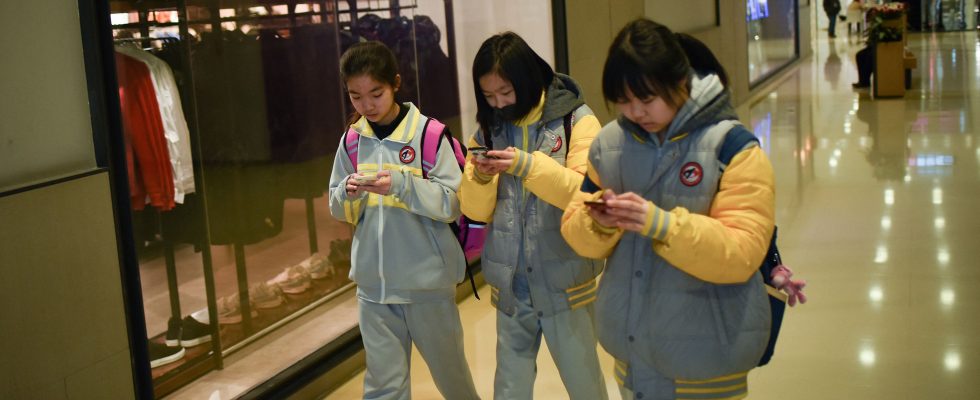For Chinese teenagers, no more online conversations until late and the binge-watching late. China’s powerful Cyberspace Administration proposed on Wednesday, August 2, a law depriving minors of the Internet at night. This restriction, which should come into force at the beginning of September, also limits the daily time spent on the Internet. Forty minutes a day for children under 8, one hour for children aged 8 to 15, and two hours for 16-17 year olds. To apply this drastic measure, the Chinese government could require mobile phone manufacturers to add a “minor mode” to their products, which would direct the accessible content according to the age of the child and cut off Internet access from from 10 p.m.
China had already restricted access to online games, very popular among young people. A 2021 law only allowed minors to play between 8 p.m. and 9 p.m. on Fridays, Saturdays and Sundays, or three hours a week, and one hour a day during school holidays. Users must log in with their date of birth and ID card number. To prevent them from using the information of adults, some companies, such as the giant Tencent, even use facial recognition: an artificial intelligence checks the features of the user to ensure that he is over 18 years old. .
Public health or population control?
The Cyberspace Administration presents this legislation as a health measure to “create a safe and healthy internet environment for minors”. She points in particular to the explosion of myopia among Chinese youth. According to a National Health Commission report published in 202152.7% of Chinese children and adolescents are nearsighted, and exposure to screens is an important factor.
Another reason put forward by the authorities is Internet addiction. In 2017, 24 million Chinese teenagers were addicted to it. The problem has existed for a long time: China recognized cyberaddiction as a disease in 2008, ten years before the World Health Organization (WHO), and opened several hundred detoxification centers across the country. The Chinese gaming industry committee announced last November that this addiction was decreasing, but the law that has just been unveiled suggests that this reduction is not enough.
The Chinese government may be acting for another reason. By cutting off Internet access during the night for minors, it further restricts the freedoms and access to information of an increasingly rebellious youth. Thousands of students and teenagers took part in last winter’s major demonstrations against Covid-19 restrictions and social networks, such as Twitter, accessible through a VPN, played an important role in the movement. Pro-democracy rallies in Hong Kong in 2019 were also largely organized by young people, even minors, thanks to the Internet and social networks.
